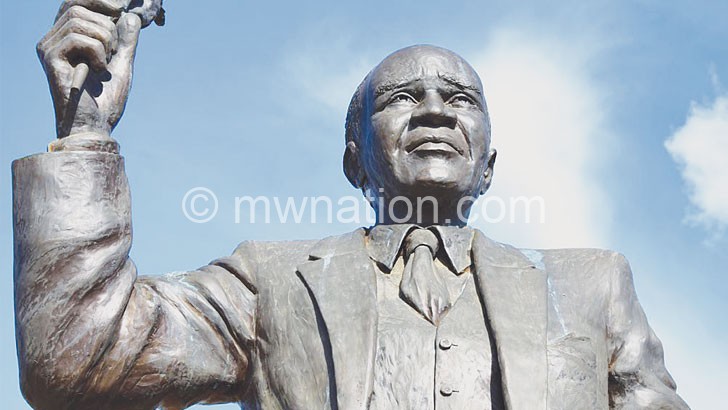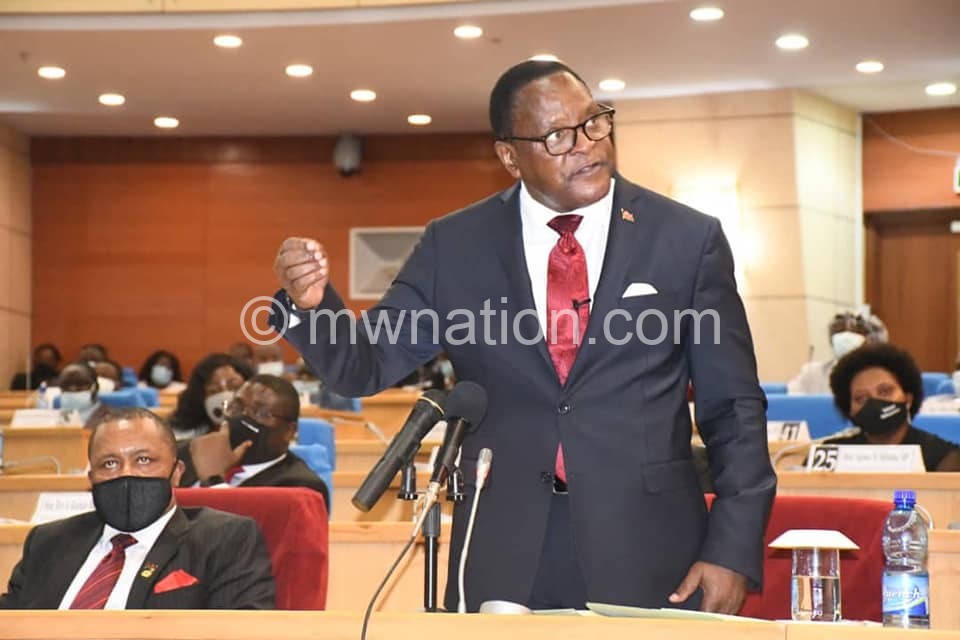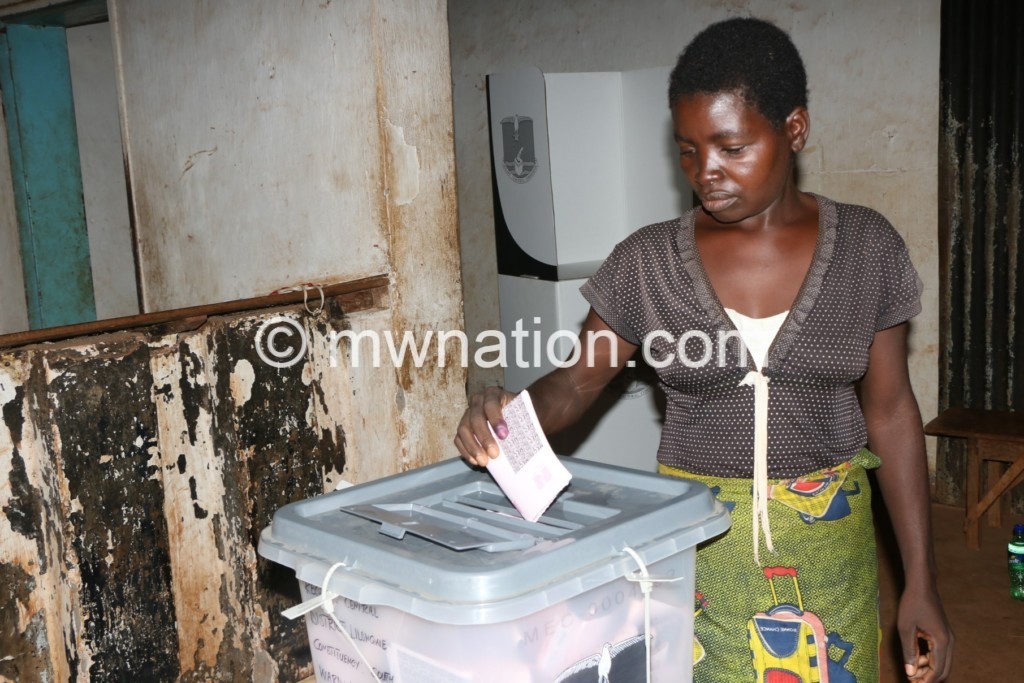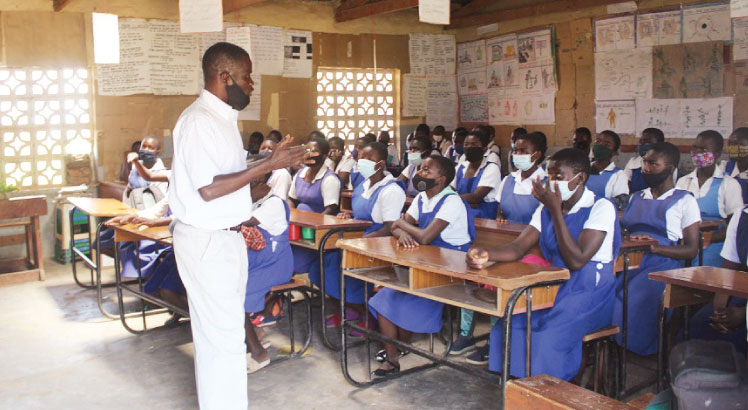Three decades in transition
On June 14 this year, Malawi commemorated the 30 anniversary of democracy.
This follows the restoration of multiparty politics in the 1993 Referendum when Malawians overwhelmingly elected the lamp of democracy.

The day changed the political landscape as Malawians voted against founding president Hastings Kamuzu Banda’s one-party system.
It is paramount to reflect on the gains achieved and the challenges faced by the nation.
The commemoration should remind the citizenry that no leader or political party will ever suppress fundamental freedoms of Malawians.
The switch to democracy was a strong message that the one-party system was no longer tenable.
Now the big question is: Has 30 years of multiparty politics met Malawi’s expectations?
We must somehow be proud that the fall of dictatorship paved way for various reforms.
Malawians cannot celebrate the hard-fought democracy without mentioning the new Constitution that includes the Bill of Rights. This safeguards fundamental freedoms. Malawians never enjoyed or knew before.

The Constitution activated in 1995 also enshrines inalienable watchdog bodies such as the Malawi Human Rights Commission, the Office of the Ombudsman and the Anti-Corruption Bureau.
These institutions are vital to consolidate democracy. Unfortunately, all the successive regimes have not been fully supporting these bodies. They have either been suspicious of these bodies or not fully appreciated the role for nation-building and democratisation.
Civil society
The country have seen the mushrooming of the civil society organisations contributing to the democratic process and national development.
The non-governmental organisations provide an important platform in shaping and influencing the democratic space while providing checks and balances.

Without the civil society, Malawi would have been sliding backward.
Equally important is press freedom. As watchdogs, the media plays a critical role in nation building, development and unity.
However, the 30-year-old democracy is not without challenges.
While democracy has expanded the enjoyment of fundamental freedoms and justice, it still appears to be stuck in transition.
The nation seems to be in dilemma on how to tackle our socio-economic and political challenges.
The country is struggling with increased corruption practices, executive arrogance, inconsistence in service delivery, resistance to reforms and political intolerance.
Perpetually, we have seen attempts to shrink the civic and democratic space.
Meanwhile, corruption remains a cross-cutting problem.
This ranges from high-level political corruption to petty bribery as well as patronage and nepotism.
Some argue that the prevailing socio-political and administrative conditions provide an enabling environment for increased corrupt practices both in government and private sector.
However, Malawi’s latest corruption scandal, allegedly involving businessperson Zuneth Sattar, reveals the vulnerability of the anti-corruption system and fears of State capture by Malawians.
This calls for public sector reforms. Yet the country is facing daunting challenges in implementing the public sector reforms.
This has increased corruption, concerns of poor services delivery and lack of accountability.
The country has seen no political will despite efforts to reform the public sector.
With the resistance to reforms, the country’s ‘defective democracy’ is showing no trend towards the consolidation of ‘people power’ and effective institutions.
In this way, the 30 years of democracy could be another tale of old wine in new skin as the country perpetuates some trends of its old-self in the new Malawi.
The old traits include political violence, intolerance, media harassment and suppression of fundamental rights, including curtailing or demonising freedom of demonstration, expression and association.
This might be sustained by some elements who do not believe in the advancement of an open and free democratic society.
These stray elements have an appetite to take this country backward, but Malawi must strive to respect, protect, promote and fulfill all human rights as a commitment to democratisation.
The politics of chameleons, poverty and opportunism should not be allowed to triumph over the will of the people.
Political pluralism has nurtured a cadre of political élites whose allegiance is selfish, unpredictable and erratic.
Here, politicians move in and out of their parties and alliances without consulting their supporters.
This is hazardous for our democracy. If not curtailed, it will bring more political chaos, hindering national unity and development.
The fleeting politicians have no commitment to long-term development.
The long-term agenda demands political and social dialogue, concessions and compromise for the benefit of the nation.
Instead, many politicians appear to be preoccupied with gaining and preserving power or preventing others from getting power.
No wonder, our politicians have always diverted their focus from developing the nation to political campaigning throughout, consolidating power and accumulating wealth from public coffers.
In any democratisation process, leadership is critical for the success of a country.
Credible, decisive and trustworthy leadership complements governance institutions and framework, providing stability and a climate necessary for sustainable development, peace and prosperity.
While democracy depends on leaders everyone can trust, Malawi has not experienced significant leadership turnover since the demise of the one-party system.
Besides, the Parliament of Malawi has become a divided partisan battleground.
This has left the National Assembly unable to function as a platform where lawmakers can debate national affairs without fear and mistrust.
The House has degenerated into a hotbed of political tension and conflict-building of political cliques.
And these are our elected representatives!
Elections are the hallmark of democratic politics. The right to vote provides a unique opportunity for the electorate to indicate their priorities, interests and concerns.
As Malawians, we must applaud ourselves for the improved conduct of our elections. But we need further electoral reforms for credible elections.
The electoral landscape must be reviewed ahead of the 2025 Tripartite Election.
Unity and reconciliation
Malawi seems to be resisting national reconciliation with the past.
This subject has been more a lip service than action. The country must address national reconciliation and unity as a priority to close the dark chapter of the past.
Compensating victims of atrocities committed in the single party rule must be on government agenda. We cannot talk about genuine peace, unity and reconciliation when the past is still haunting us.
The nation needs closure as the lingering memories hinder the consolidation of democracy.
As we commemorate 30 years of Malawi’s democracy, we are assured that no one will ever run the country like a personal estate.
We are also assured that no one will be detained without trial, tortured, intimidated, harassed, spied on, followed up or seen as an enemy of the State for demanding good governance, accountability and an end to corruption.
Long live democracy!






One Comment